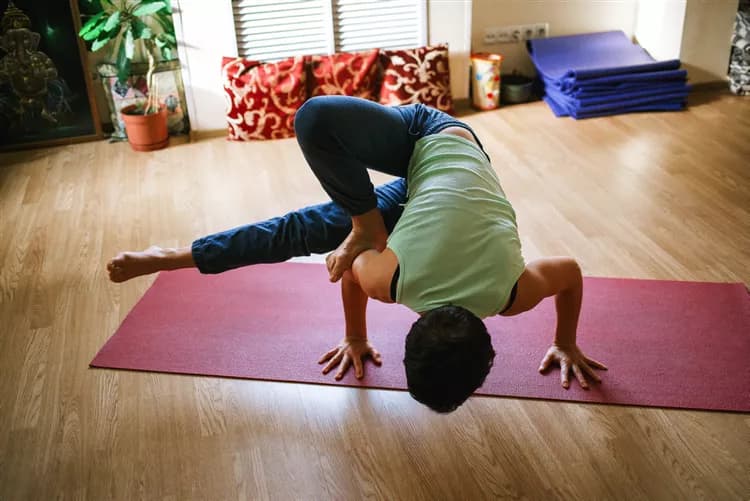
Yoga More Risky For Causing Musculoskeletal Pain Than You Might Think
Yoga causes musculoskeletal pain in 10 per cent of people and exacerbates 21 per cent of existing injuries, University of Sydney research shows.
Published in the Journal of Bodywork and Movement Therapies, the findings come from the first prospective study to investigate injuries caused from recreational participation in yoga.
Yoga is an increasingly popular complementary or alternative therapy for musculoskeletal disorders, with millions of people practicing worldwide.
"While yoga can be beneficial for musculoskeletal pain, like any form of exercise, it can also result in musculoskeletal pain," said lead researcher Associate Professor Evangelos Pappas from the University's Faculty of Health Sciences, who conducted the study with Professor Marc Campo from Mercy College, New York.
"Our study found that the incidence of pain caused by yoga is more than 10 per cent per year, which is comparable to the injury rate of all sports injuries combined among the physically active population. However people consider it to be a very safe activity. This injury rate is up to 10 times higher than has previously been reported.
"We also found that yoga can exacerbate existing pain, with 21 per cent of existing injuries made worse by doing yoga, particularly pre-existing musculoskeletal pain in the upper limbs.
"In terms of severity, more than one-third of cases of pain caused by yoga were serious enough to prevent yoga participation and lasted more than 3 months.
"The study found that most "new" yoga pain was in the upper extremities (shoulder, elbow, wrist, hand) possibly due to downward dog and similar postures that put weight on the upper limbs.
"It's not all bad news, however, as 74 per cent of participants in the study reported that existing pain was improved by yoga, highlighting the complex relationship between musculoskeletal pain and yoga practice.
"These findings can be useful for clinicians and individuals to compare the risks of yoga to other exercise enabling them to make informed decisions about which types of activity are best.
"Pain caused by yoga might be prevented by careful performance and participants telling their yoga teachers of injuries they may have prior to participation, as well as informing their healthcare professionals about their yoga practice.
"We recommend that yoga teachers also discuss with their students the risks for injury if not practiced conscientiously, and the potential for yoga to exacerbate some injuries.
"Yoga participants are encouraged to discuss the risks of injury and any pre-existing pain, especially in the upper limbs, with yoga teachers and physiotherapists to explore posture modifications that may results in safer practice," Associate Professor Pappas said.
Materials provided by University of Sydney. Note: Content may be edited for style and length.
Disclaimer: DoveMed is not responsible for the accuracy of the adapted version of news releases posted to DoveMed by contributing universities and institutions.
Primary Resource:
Campo, M., Shiyko, M. P., Kean, M. B., Roberts, L., & Pappas, E. (2017). Musculoskeletal pain associated with recreational yoga participation: A prospective cohort study with 1-year follow-up. Journal of Bodywork and Movement Therapies. DOI: 10.1016/j.jbmt.2017.05.022
Related Articles
Test Your Knowledge
Asked by users
Related Centers
Related Specialties
Related Physicians
Related Procedures
Related Resources
Join DoveHubs
and connect with fellow professionals

0 Comments
Please log in to post a comment.